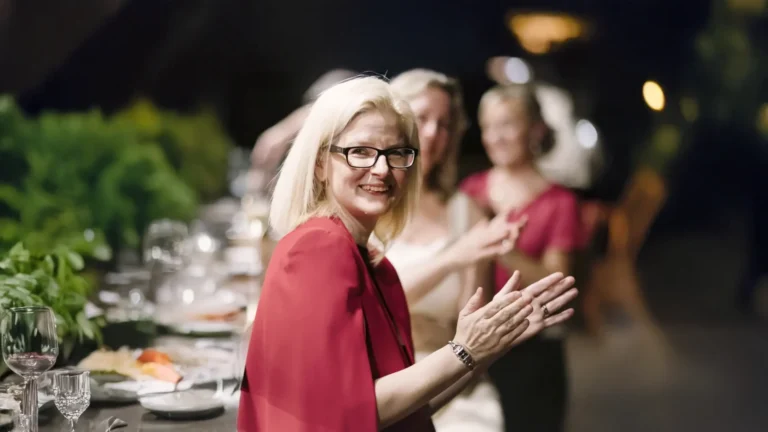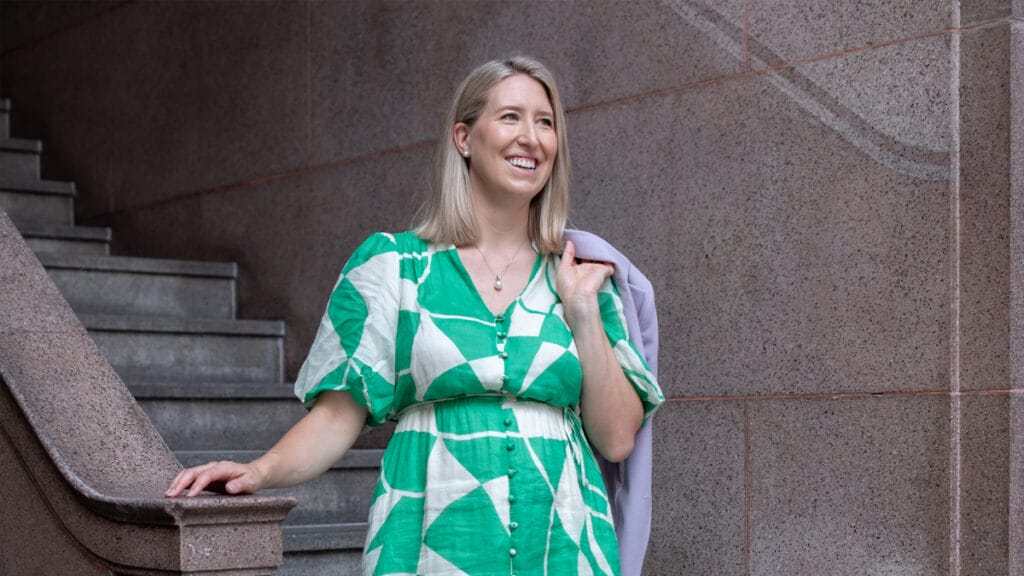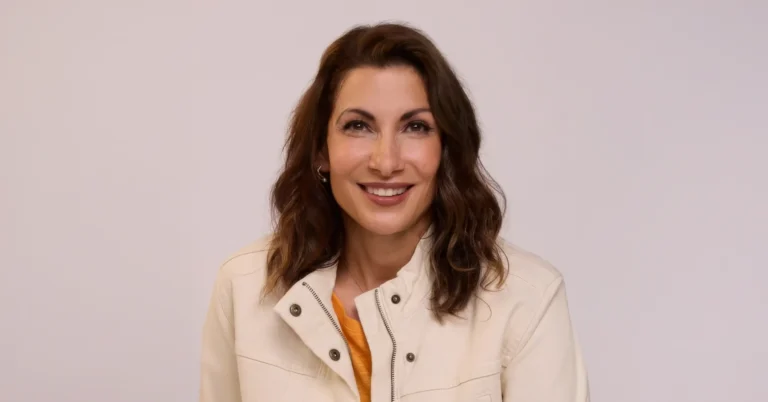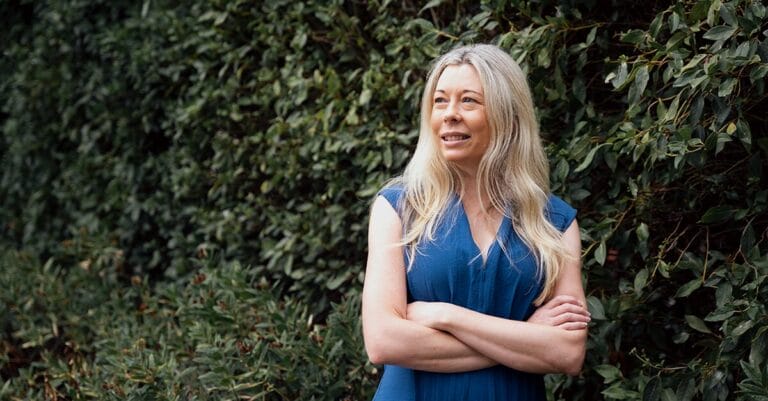

Working for a not-for-profit had never been on Elisabeth (Lis) Flett’s radar. In fact, InView’s newest Champion considered it a no-go zone, something a legal corporate high-flier such as herself should steer clear of at this stage of her career. But when such an opportunity presented itself, and despite Lis initially declining to consider it, something about the role on offer, General Counsel at Cancer Council NSW, sparked a flame that refused to be extinguished.
“The approach came when I was on maternity leave from my role at DP World; my daughter was only four months old. And while I had doubts about returning to my old job as the company was undergoing a major restructuring which would impact my workload and responsibilities, I dismissed the notion of working in the not-for-profit sector at first. I worried that moving away from a corporate role would somehow soften my skills and pigeon-hole me for future roles. I was concerned that the work wouldn’t be complex enough, and that I’d miss the big deals and big figures I was used to working with in heavy industry and infrastructure.”
Lis initially tried to persuade herself that she was the wrong fit for the job, that being a high-performance, high-tempo kind of person didn’t align with not-for-profit. So why did she find herself lying awake for nights on end, her mind whirling with the possibilities the role presented? It was as if her head and her heart were on a collision course – and the impact, when it occurred, was profound. The job was everything and more that she wanted, a way in which she could combine the most important aspects of her life, professional and personal. It was also an opportunity to do law differently, and to carve out her own happy corner of the law where lawyers could learn and thrive. Within a week, she had gone from dismissing the role to being certain it was right for her. Meetings with management and research into the organization’s mission and achievements removed any doubt that this was an opportunity she just had to have.
Two-and-a-half years on, that same certainty remains. The differences between working in private practice and large corporations and a not-for-profit organization have proved to be positive. “I expected it to be the type of environment where, because of budget constraints, we’d have to scrape by and deliver ‘good enough’ legal work. Instead it’s pushed me to dig deep and really allow me to be creative and resourceful in the ways we deliver best class legal services. What I also hadn’t expected was the expertise I’d encounter. Because Cancer Council’s work is very research-based, I’m surrounded by some incredibly impressive people – data evaluation experts, cancer research experts, epidemiologists – people who’ve worked in public health and government for a long time. It’s not just a collection of people who mean well. We produce world-leading research and programs that create meaningful change in society, such as the latest position taken by the government on vaping, advances to eliminate cervical cancer, our phenomenal contribution to reducing cancer deaths and our in-community services and education that support people living with cancer.”
Research undertaken by Cancer Council is particularly meaningful to Lis. According to the organization, cancer is a common disease and one of the leading causes of death in Australia. It is estimated that one in two Australians will be diagnosed with cancer by the age of eighty-five. Which means that few families escape unscathed by the disease which is the leading cause of death worldwide. When Lis was at university her mother was diagnosed with cancer, which impacted her career choice. She shelved plans to study veterinary science because it would have meant leaving Tasmania while her mother was undergoing treatment, which she wasn’t prepared to do. Instead, she studied science and law at the University of Tasmania. When Lis eventually relocated to Sydney, her mother’s outcome was positive (and although she continues to live with cancer she is doing well).
Finding a job in Sydney wasn’t easy but eventually Lis landed a great in-house role with CSR Limited, a big player in the building material industry. From there she went to a law firm, a move she knew she didn’t want to pursue long-term but was told she had to do for at least three to five years if she wanted to have a long-term career in-house. The cutthroat environment didn’t sit well with her, but she stuck with it for two years until her mother’s cancer diagnosis took another turn. “I could no longer sustain the energy to keep pushing on in private practice. I’d been slowly burning out, but the risk of losing my mum had me questioning what I wanted from life, and at that time I just couldn’t see a sustainable future in the law.”
Deciding to revisit her veterinary ambitions she enrolled at Sydney University’s School of Veterinary Science. However, after a year at university, a friend persuaded her to combine her studies with part-time work as a lawyer for Brookfield GIS – a global building and facilities management company. “I spent two or three days a week working at Brookfield and the remainder of my time out at the uni farm or on prac where I’d be assisting with castrating bulls or working with sheep. It gave me a strange but therapeutic balance, and one always offered something complementary to the other – flexibility, perspective, and the sense that I was doing law on my own terms.”
That year helped Lis to form her future. She realized her skill set was talking to people and problem solving, and that metropolitan living appealed more than rural life. But it was when she was approached by Ruralco Holdings Limited, an ASX- listed agribusiness company, that she felt able to return fully to the law, and decided it was time to give up the dream of becoming a vet.
Over the next decade, Lis took on several demanding jobs – Legal and Corporate Counsel for BGIS, Legal Counsel with Ruralco Holdings Ltd, Legal Counsel at Sydney Metro, and Corporate Counsel at DP World Australia, and her greatest role to date – mother of two (soon to be three). While change wasn’t always something that she was seeking – returning to work after having her first child prompted a reluctant move away from a much-loved role – changing roles regularly kept her interested and challenged, and deepened her sense of purpose.
“Life’s too short not to give a few things a try,” she says. “When I worked in agribusiness, I loved that I solved problems for people living in rural Australia and in a sector that I’d formed a close connection to during my vet studies. Now I work in an area where, again, I can connect with the purpose. That connection is really motivating, and it shapes how I now look at work.
“You do have the privilege of being able to be more selective about your choices the further on you get in your career, so I appreciate that early career lawyers need to do whatever comes along to get experience. But later, when you’re making decisions about where you want to spend your time, you have the opportunity to follow your heart or to follow your head. If you can align the two, that’s where I believe you can really thrive. These days, what informs my decision making is asking myself, do I connect with the purpose? Even if the money and the type of work is attractive, if I can’t connect with the business, with its purpose, or if it’s going to take away from what I value the most – family – then it’s not going to work out for me. And I know I’m not going to consider certain roles because of that.”
Here Lis digs deeper, explaining that her decisions aren’t based on judgment [of the role or the business] but rather on the inherent connection – that spark. Having found it and loving how it has ignited her passion for what she does, she now realizes there is no turning back.
“I feel energized by what I’m doing, and I’ve got that perfect balance between doing interesting and complex corporate work, in a highly driven and purposeful environment. It plays to my strengths, but has also opened up some great learning and development opportunities. Never having led or run a legal team before, I’ve been able to put into practice my values through my leadership style. I’ve learned that I can get excellent results by leading through empathy and by example, that I get the best out of people by valuing them for who they are and what they uniquely contribute. And I’m proud to be able to do that.”
And while Lis says working for a not-for-profit hasn’t changed her, she admits it has helped her to flourish personally in her work environment. It has been and continues to be a validating and confidence-boosting experience. “Being uniquely you in an industry that would have you believe that fitting in is the secret to success is not just okay, it’s actually your superpower.”


